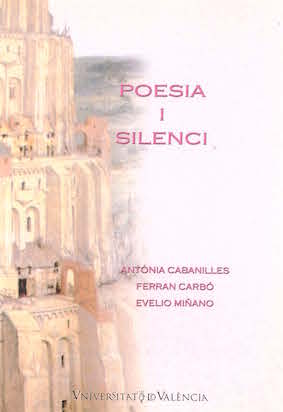Le silence dans la poésie d’Anise Koltz: de Chants de Refus à Béni soit le Serpent
DOI:
https://doi.org/10.7203/qf-elit.v11i0.5071Paraules clau:
silenci, poesia, Luxemburg Resum
Resum
El silenci ocupa un lloc important en la poesia de Anise Koltz, autora luxemburguesa d'expressió francesa i alemanya. Forma part de la temàtica fonamental d'aquesta poesia i és al mateix temps practicat per una escriptura caracteritzada per la concisió i la interrupció. Per aquest motiu el silenci constitueixi una de les claus d'aquest univers poètic, que va des del tema de silenci fins a la seva paradoxal pràctica en l'escriptura. A més, es produeix en ell una forta tensió perquè, al costat d'aquesta tendència, coexisteix una altra cap a la paraula, impulsada per poderoses raons. La lectura de la poesia en llengua francesa de Anise Koltz des de Chant de Refus fins a Béni soit li Serpent –que constitueixen el corpus d'aquest treball– serà més rica si el lector és capaç de posar en connexió el silenci com a tema amb el silenci com a pràctica, tot això en tensió amb les poderoses raons que té la veu poètica de no callar.
 Descàrregues
Descàrregues
Descàrregues
Publicades
Com citar
-
Resum295
-
PDF (Español)290
Número
Secció
Llicència
 Este obra está bajo una licencia de Creative Commons Reconocimiento-NoComercial-SinObraDerivada 4.0 Internacional.
Este obra está bajo una licencia de Creative Commons Reconocimiento-NoComercial-SinObraDerivada 4.0 Internacional.
Tots els documents inclosos a OJS són d'accés lliure i propietat dels seus autors i/o institucions editores, i per tant, qualsevol acte de reproducció, comercialització, comunicació pública o transformació total o parcial necessita el consentiment exprés i escrit d'aquests.
________
Authors who publish with this journal agree to the following terms:
- Authors retain copyright and grant the journal right of first publication with the work simultaneously licensed under a Creative Commons Attribution License that allows others to share the work with an acknowledgement of the work's authorship and initial publication in this journal.
- Authors are able to enter into separate, additional contractual arrangements for the non-exclusive distribution of the journal's published version of the work (e.g., post it to an institutional repository or publish it in a book), with an acknowledgement of its initial publication in this journal.
- Authors are permitted and encouraged to post their work online (e.g., in institutional repositories or on their website) prior to and during the submission process, as it can lead to productive exchanges, as well as earlier and greater citation of published work (See The Effect of Open Access).




